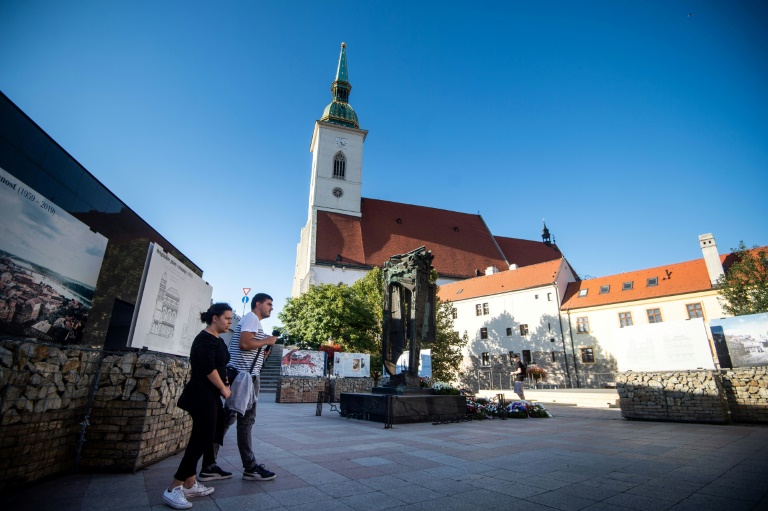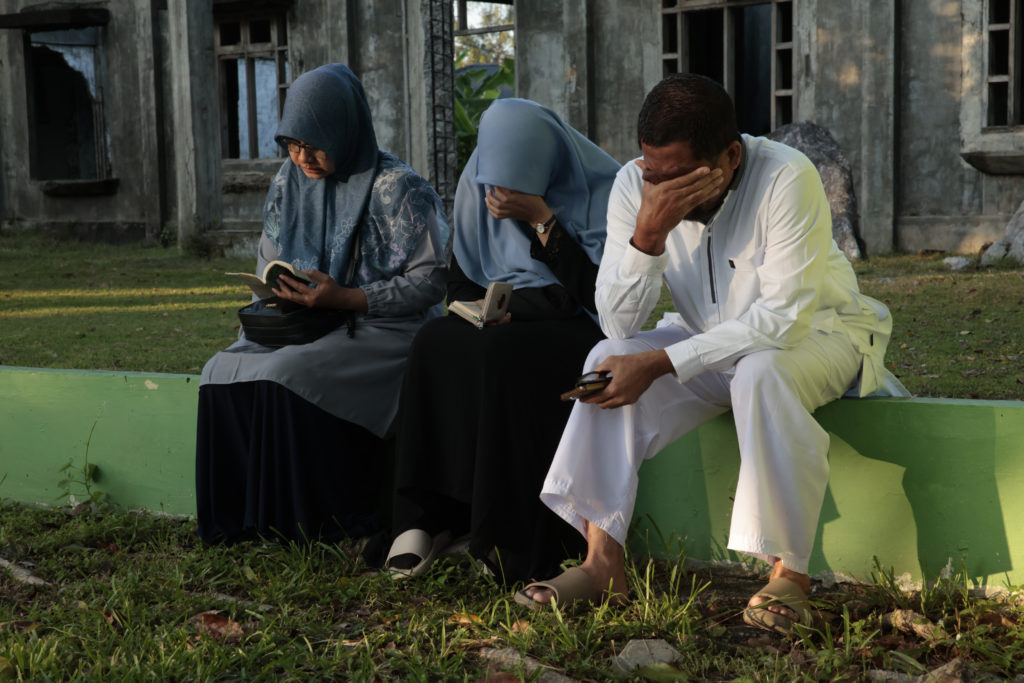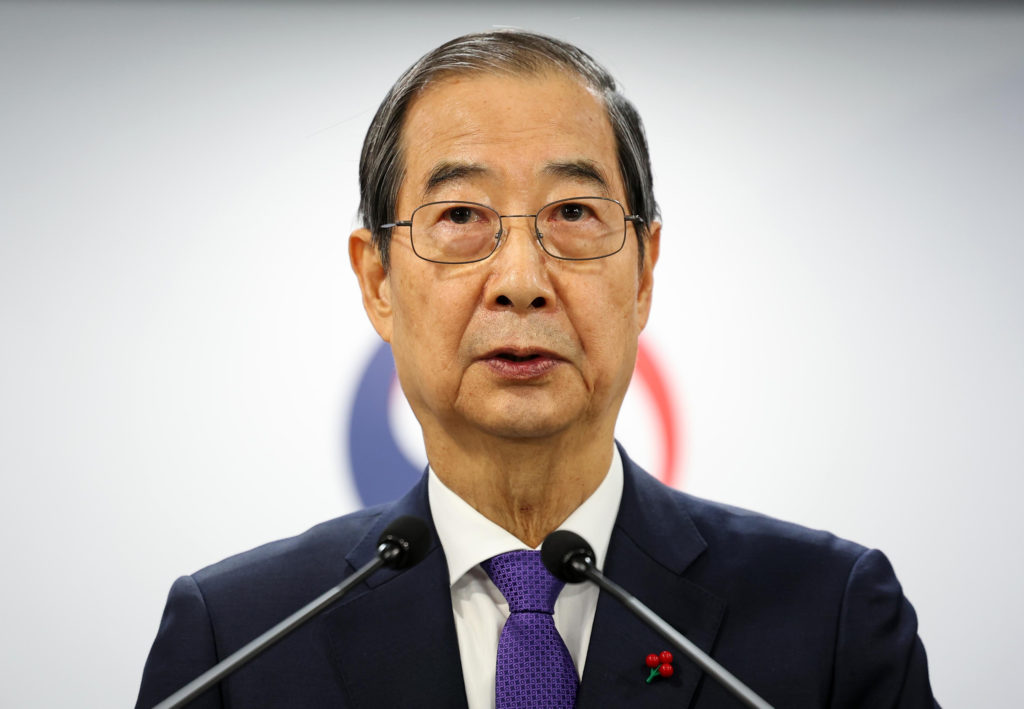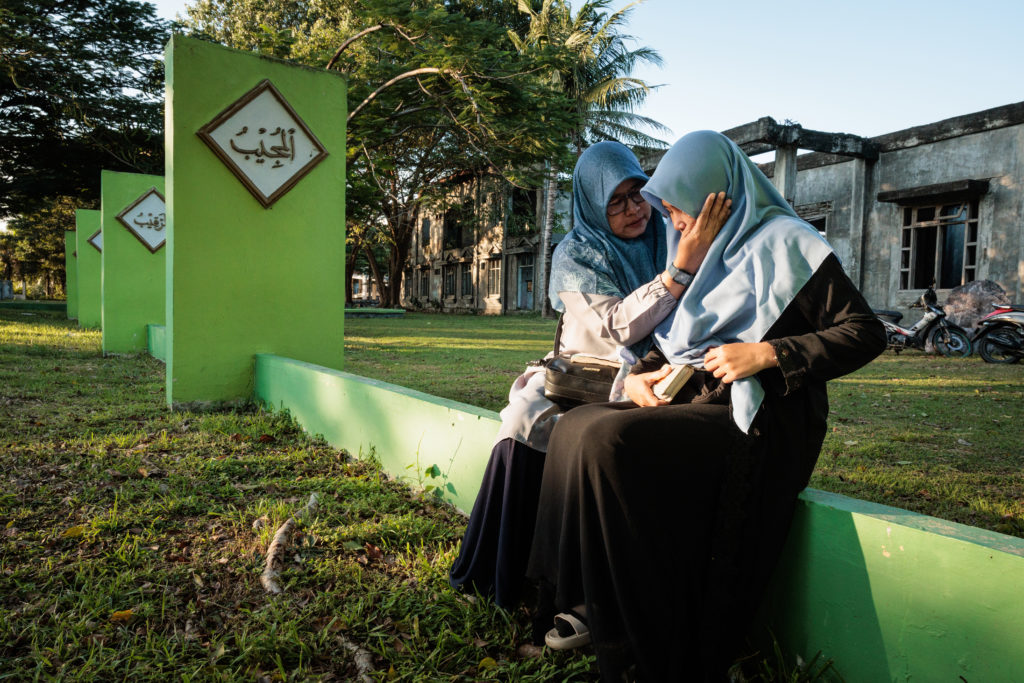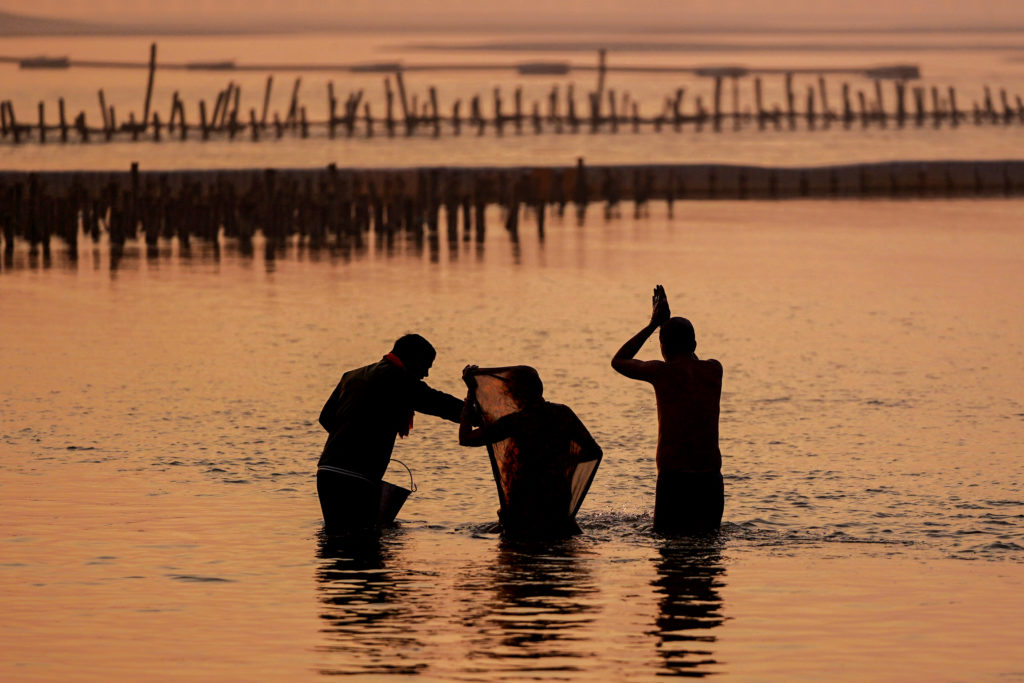Jewish leaders hope Pope Francis’s visit to Slovakia this week will help further improve Catholic-Jewish relations in a country with a dark history of Holocaust collaboration where levels of anti-Semitism are still high.
Under the orders of a Nazi puppet regime headed by a Catholic priest, tens of thousands of Slovak Jews were deported and killed during World War II and the once-thriving community now numbers only around 2,000 people.
Pope Francis is set to meet members of the Jewish community, including Holocaust survivors, on Monday in Rybne Square in a traditionally Jewish neighbourhood of the capital Bratislava where a synagogue once stood.
“We first thought that His Holiness would only meet with the highest ranking Jewish authorities somewhere in an office,” said Richard Duda, chairman of the Central Union of Jewish Communities in Slovakia.
“We were positively surprised when the Vatican communicated that Pope Francis will visit Rybne Square, a place that is very symbolic and emotive for our community,” he told AFP.
Duda said the square is a symbol of peaceful cohabitation between the Catholic and Jewish communities.
For centuries, there were two places of worship there — St Martin’s Cathedral and a synagogue that was demolished by the Communist government in 1969 to make room for a bridge.
A memorial on the square erected in 1996 commemorates the 105,000 Holocaust victims from Slovakia.
– ‘Latent anti-Semitism’ –
Fewer than 300 survivors are left in the country.
“It was our priority to give a chance to Holocaust survivors to see Pope Francis. I believe it will be a symbolic and strong moment for them as these people have been suffering for all their lives.
“We expect that the pope will lay another brick in the building of Jewish-Catholic dialogue to make it more intensive,” Duda said.
Rabbi Misha Kapustin, spiritual leader of the 500-strong Bratislava Jewish community, said dialogue with Slovak Christians has improved under Pope Francis.
“I remember the times when Pope Francis was a bishop in Argentina. I know that dialogue with Jewish people was very important for him. This relationship deepened even further when he became pope,” Kapustin said.
Anti-Semitic views in Slovakia remain strong, however.
A study published last year by Globsec, a Slovak think tank, found that 51 percent of the 1,000 Slovaks surveyed believe “Jews have too much power and secretly control governments and institutions around the world”.
It was the highest percentage of the 10 countries surveyed in Central and Eastern Europe.
“A rather latent anti-Semitism still exists in Slovakia,” said Ivica Bumova, a historian at Comenius University in Bratislava.
– ‘A positive step’ –
Slovak Jews faced persecution for much of the 20th century.
After the creation in 1939 of the first Slovak Republic, a totalitarian client state of Nazi Germany, several anti-Jewish laws were adopted which served as the basis for deportations.
The republic’s leader, Jozef Tiso, agreed to send tens of thousands of Jews to Germany’s World War II death camps.
After the war, most of those who remained either emigrated or stayed and hid their Jewish identity.
Under Communism, Jews were prosecuted and jailed for alleged Zionist crimes, and the regime banned practising their religion.
The so-called Velvet Revolution in 1989 was a positive milestone for the Jewish community as freedom of religion was introduced.
But successive governments for a long time failed to address the legacy of the Tiso regime.
This week, the government apologised for the first time for the anti-Jewish laws adopted in 1941.
“The Slovak cabinet feels a moral duty to publicly express regret over the crimes committed by the ruling power of that time,” it said in a formal declaration.
Bumova welcomed the statement as “a positive step”, adding: “Maybe it should have come earlier, but the important thing is that it has been formulated at all.”

